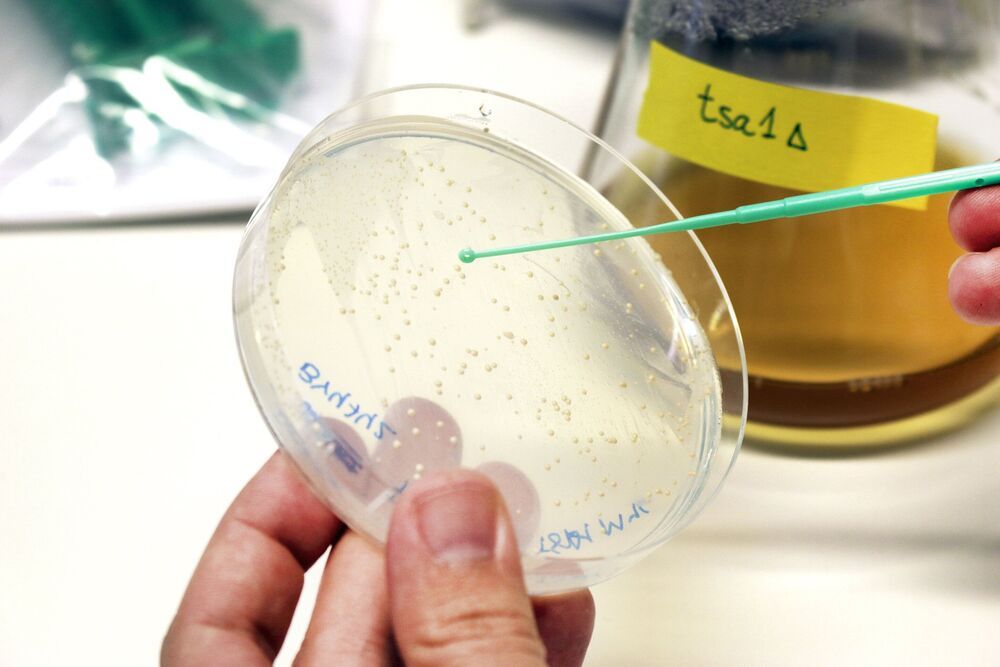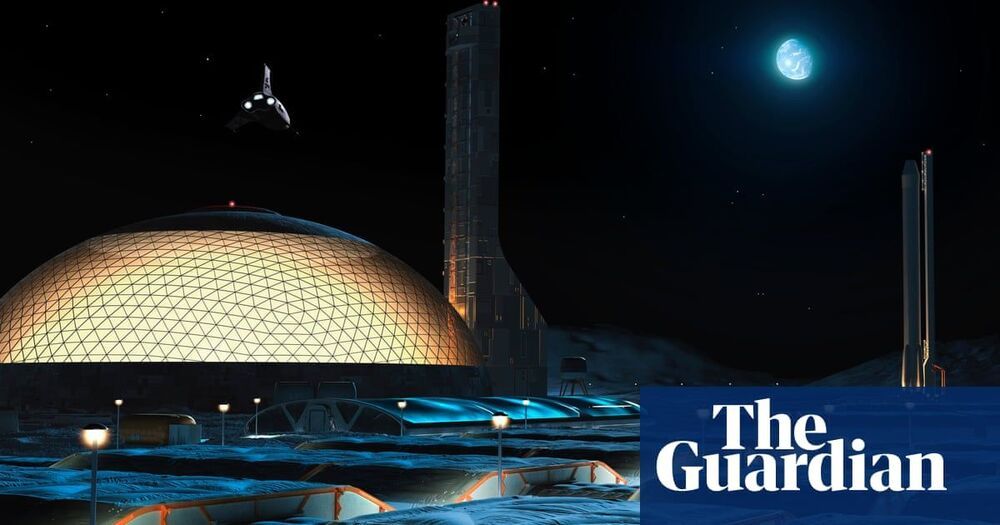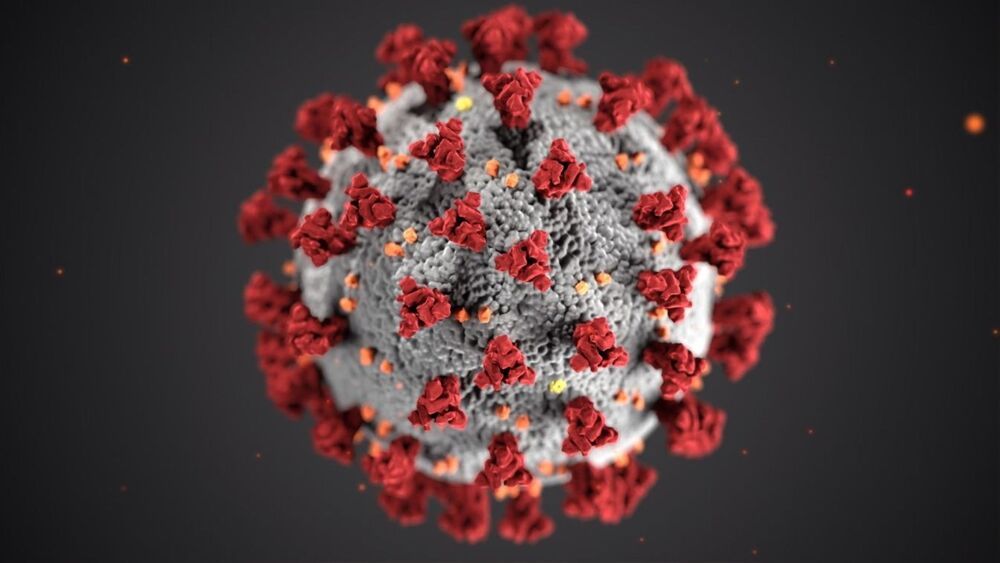Circa 2019
Could molten salt reactors might just turn nuclear power into the greenest energy source on the planet?


At high concentrations, reactive oxygen species—known as oxidants—are harmful to cells in all organisms and have been linked to aging. But a study from Chalmers University of Technology, Sweden, has now shown that low levels of the oxidant hydrogen peroxide can stimulate an enzyme that helps slow down the aging of yeast cells.
One benefit of antioxidants, such as vitamins C and E, is that they neutralize reactive oxygen species —known as oxidants—which may otherwise react with important molecules in the body and destroy their biological functions. Larger amounts of oxidants can cause serious damage to DNA, cell membranes and proteins for example. Our cells have therefore developed powerful defense mechanisms to get rid of these oxidants, which are formed in our normal metabolism.
It was previously believed that oxidants were only harmful, but recently, scientists have begun to understand that they also have positive functions. Now, the new research from Chalmers University of Technology shows that the well-known oxidant hydrogen peroxide can actually slow down the aging of yeast cells. Hydrogen peroxide is a chemical used for hair and tooth whitening, among other things. It is also one of the metabolically produced oxidants that is harmful at higher concentrations.
Buy the best gadgets at SharperImage.com. Thoroughly clean clothes, jewelry, produce, silverware, glasses and more using just one device… The
Sony wants a bigger piece of the drone market. Today, the Japanese giant unveiled a project called Airpeak, which will “support the creativity of video creators to the fullest extent possible,” according to a cryptic press release. That makes it sound like Sony wants to take on consumer-focused drone makers such as DJI, Parrot and Skydio. Which makes a lot of sense, given Sony’s expertise in the compact and full-frame mirrorless camera markets. If you’re a vlogger or independent filmmaker that already uses Sony gear, you might be tempted by a drone with similar technology. If nothing else, it would make it easier to color correct and combine footage.
In the press release, though, Sony notes how drones have led to “workflow efficiency and energy savings in the industrial sector.” It adds: “Sony has assigned the ‘Airpeak’ brand to reflect its aspiration to contribute to the further evolvement and the creation of the unprecedented value through its imaging and sensing technology as well as 3R technologies (Reality, Real-time and Remote) in the drone area.” So it a consumer or enterprise play? We’re hoping its the former. The company already has Aerosense — a business-focused drone collaboration with ZMP — which specializes in surveying, capturing live events and creating maps from drone imagery.
What rights does a robot have? If our machines become intelligent in the science-fiction way, that’s likely to become a complicated question — and the humans who nurture those robots just might take their side.
Ted Chiang, a science-fiction author of growing renown with long-lasting connections to Seattle’s tech community, doesn’t back away from such questions. They spark the thought experiments that generate award-winning novellas like “The Lifecycle of Software Objects,” and inspire Hollywood movies like “Arrival.”
Chiang’s soulful short stories have earned him kudos from the likes of The New Yorker, which has called him “one of the most influential science-fiction writers of his generation.” During this year’s pandemic-plagued summer, he joined the Museum of Pop Culture’s Science Fiction and Fantasy Hall of Fame. And this week, he’s receiving an award from the Arthur C. Clarke Foundation for employing imagination in service to society.

“Anything you take from Earth to the moon is an added weight that you don’t want to carry, so if you can make these materials in situ it saves you a lot of time, effort and money,” said Ian Mellor, the managing director of Metalysis, which is based in Sheffield.
Analyses of rocks brought back from the moon reveal that oxygen makes up about 45% of the material by weight. The remainder is largely iron, aluminium and silicon. In work published this year, scientists at Metalysis and the University of Glasgow found they could extract 96% of the oxygen from simulated lunar soil, leaving useful metal alloy powders behind.
NASA and other space agencies are in advanced preparations to return to the moon, this time to establish a permanent lunar base, or “moon village” where nations will operate alongside private companies on critical technologies such as life support, habitat construction, energy generation and food and materials production.


Most efforts to combat the coronavirus have focused on public health measures and the race to develop a vaccine. However, a team from Columbia University, Cornell University, and others has developed something new: a nasal spray that attacks the virus directly. In a newly released study, the concoction was effective at deactivating the novel coronavirus before it could infect cells.
Like all viruses, SARS-CoV-2 (the causative agent of COVID-19) needs to enter a cell to reproduce. The virus injects its RNA genome and hijacks cellular machinery to make copies of itself, eventually killing the cell and spreading new virus particles to infect other cells. Gaining access to a cell requires a “key” that fits into a protein lock on the cell surface. In the case of SARS-CoV-2, we call that the spike protein, and that’s where the new nasal spray blocker attacks.
The spike protein “unzips” when it meets up with a cell, exposing two chains of amino acids (the building blocks of proteins). The spray contains a lipoprotein, which has a complementary strand of amino acids linked with a cholesterol particle. The lipoprotein inserts itself into the spike protein, sticking to one of the chains that would otherwise bind to a receptor and allow the virus to infect the cell. With that lipoprotein in the way, the virus is inactivated.
Circa 2019 o,.o.
❤️ Check out Weights & Biases here and sign up for a free demo: https://www.wandb.com/papers
❤️ Their blog post is available here: https://www.wandb.com/articles/better-paths-through-idea-space
📝 The paper “Emergent Tool Use from Multi-Agent Interaction” is available here:
https://openai.com/blog/emergent-tool-use/
❤️ Watch these videos in early access on our Patreon page or join us here on YouTube:
- https://www.patreon.com/TwoMinutePapers
- https://www.youtube.com/channel/UCbfYPyITQ-7l4upoX8nvctg/join
🙏 We would like to thank our generous Patreon supporters who make Two Minute Papers possible:

Superconductors – materials in which electricity flows without any resistance whatsoever – could be extremely useful for future electronics. Now, engineers at the University of Tokyo have managed to create a superconductor out of a state of matter called a Bose-Einstein condensate (BEC) for the first time ever.
Sometimes called the fifth state of matter, behind the more commonly known solids, liquids, gases and plasmas, Bose-Einstein condensates are what happens when you cool a gas of bosons right down to almost the coldest temperature possible. Experiments have shown that at this point, quantum phenomena can be observed at the macro scale. Scientists have used BECs as a starting point to create exotic states of matter like supersolids, excitonium, quantum ball lightning, and fluids exhibiting negative mass.
“A BEC is a unique state of matter as it is not made from particles, but rather waves,” says Kozo Okazaki, lead author of the study. “As they cool down to near absolute zero, the atoms of certain materials become smeared out over space. This smearing increases until the atoms – now more like waves than particles – overlap, becoming indistinguishable from one another. The resulting matter behaves like it’s one single entity with new properties the preceding solid, liquid or gas states lacked.”